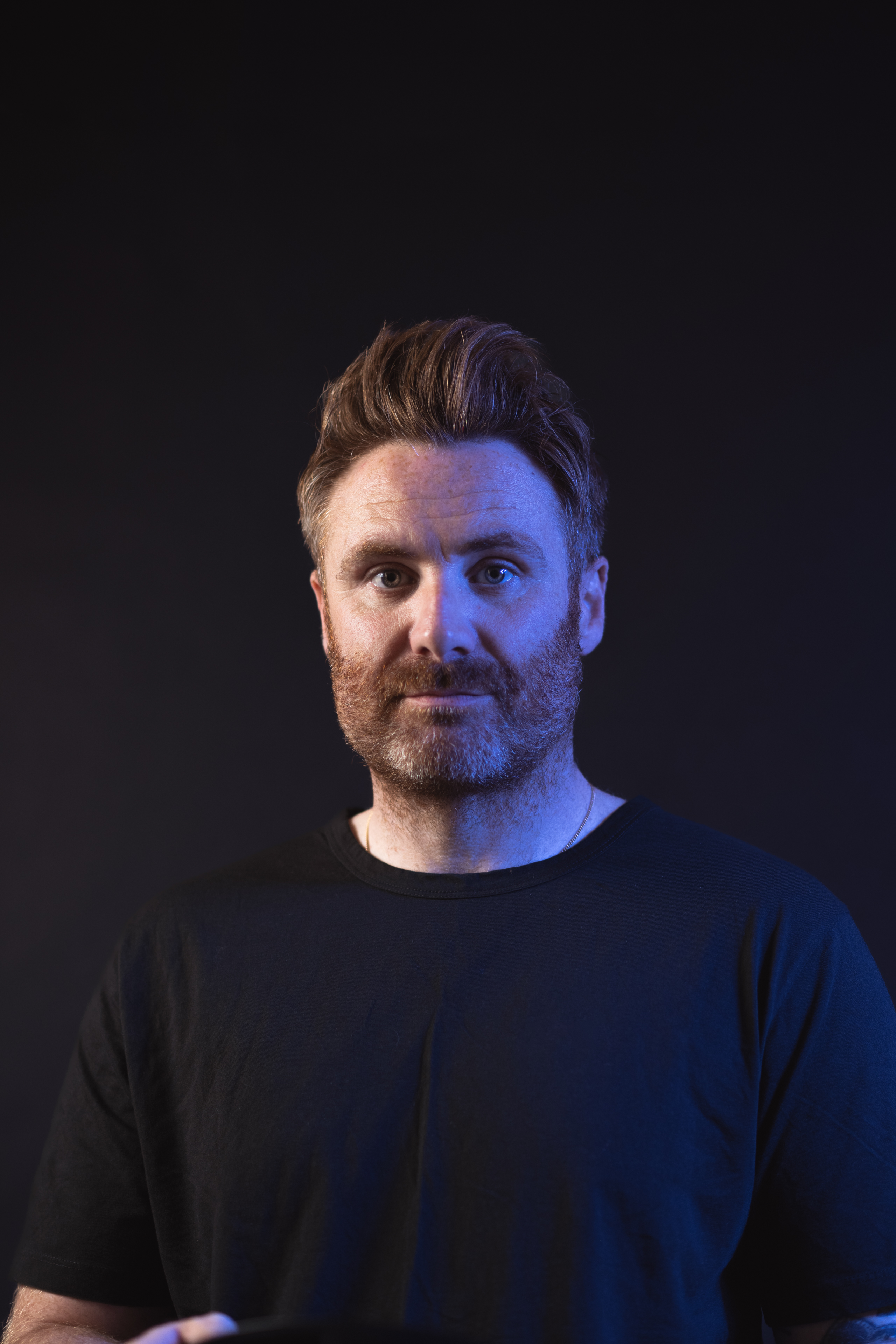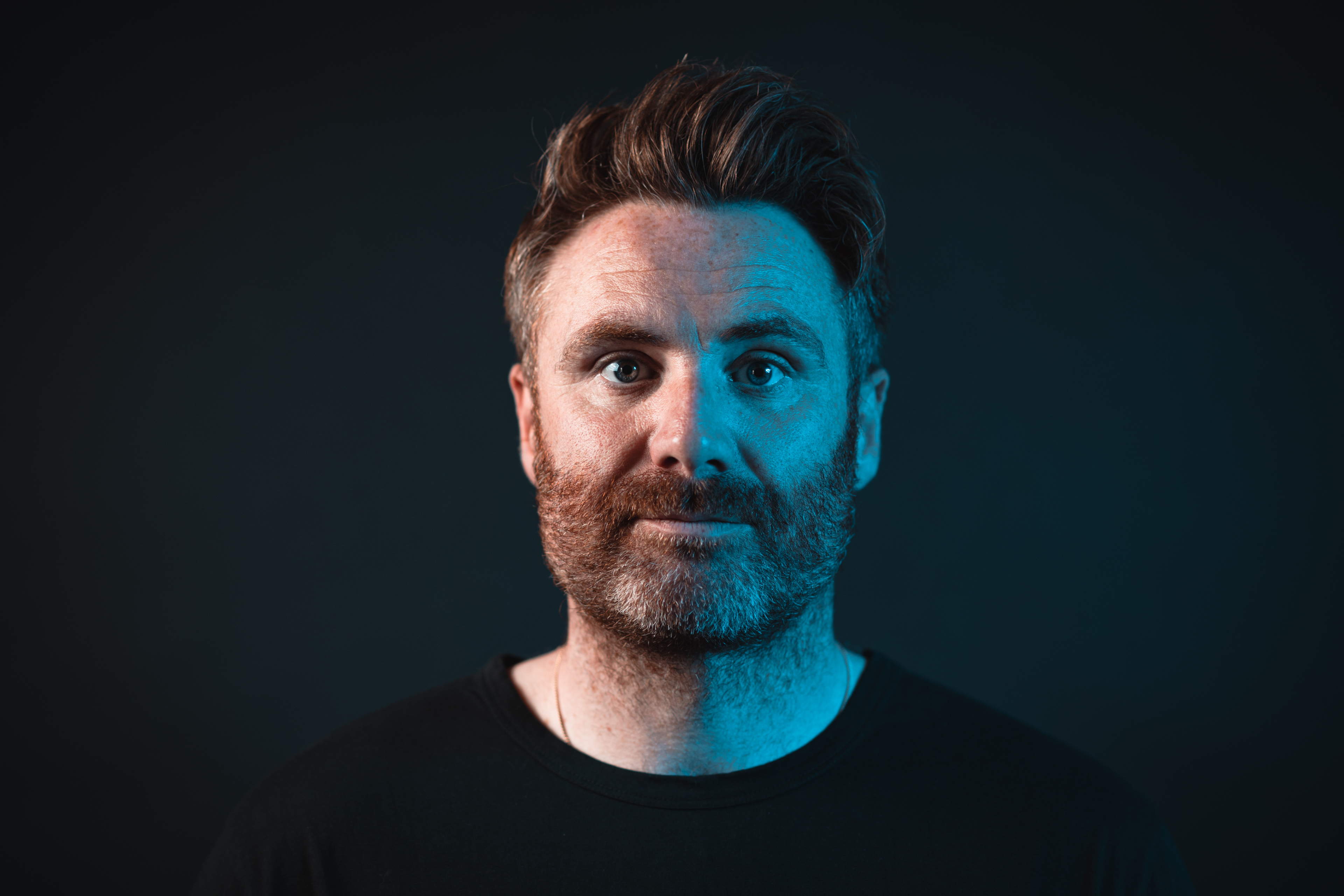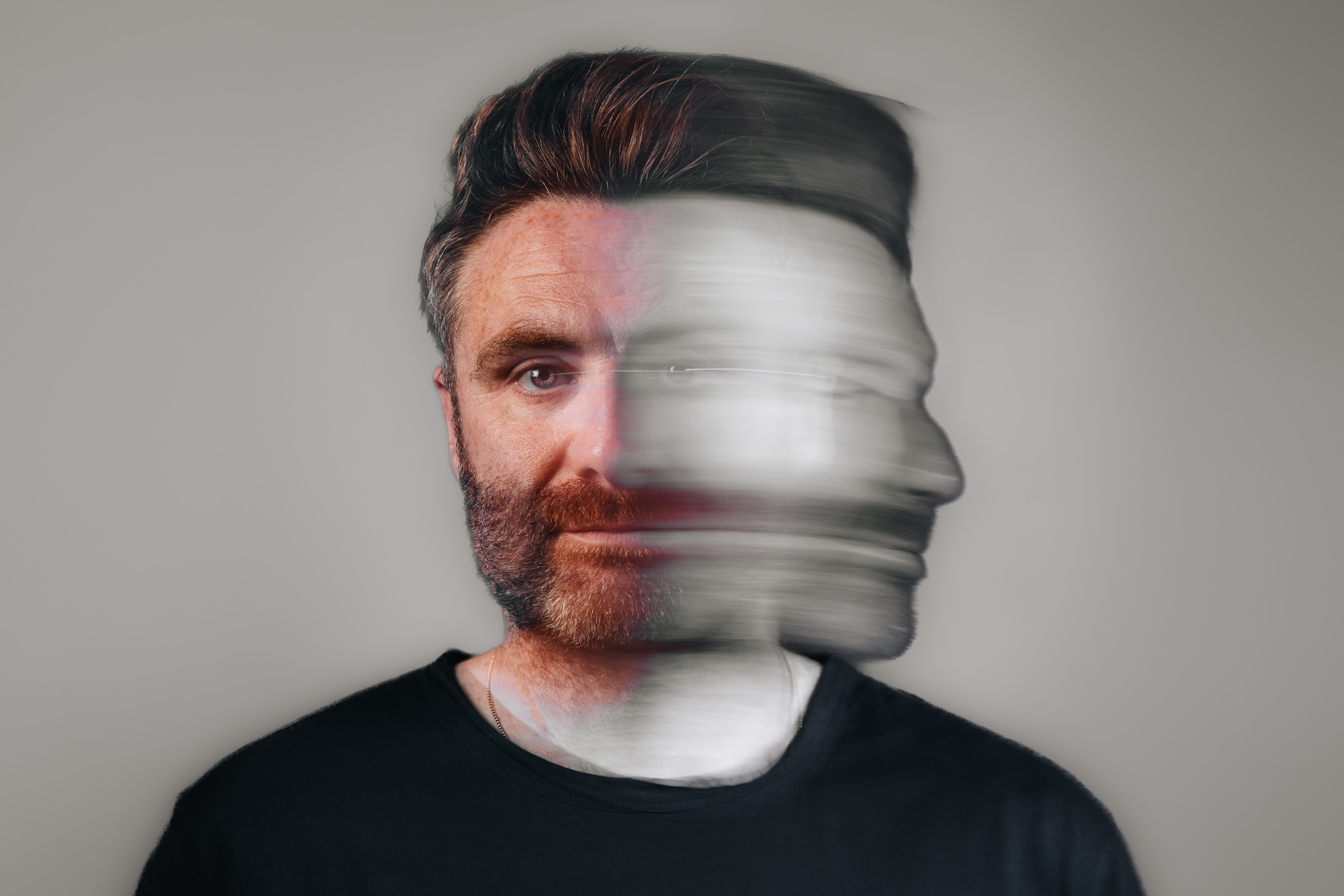YAMA mixes Nightclubber 217
In an era where immediacy often overshadows intention, YAMA Music Records stands out by slowing things down. Co-founded by long-time friends and collaborators Paul and Lee, the label has carved out a space in the ever-shifting terrain of minimal and micro house—one where detail matters, patience pays off, and vinyl is still revered as sacred. What started as a humble series of monthly Bandcamp drops has since grown into a respected, globally recognised imprint, with Yama now distributed through the esteemed Paris-based Yoyaku, and championed by artists they once admired from afar.
But beyond the records themselves, it’s the label’s ethos that resonates most—an unwavering dedication to craft, a preference for quality over quantity, and a visual identity that speaks in quiet, confident tones. Whether through its understated mountain imagery, carefully curated release schedule or ongoing collaborations with like-minded creatives, Yama Music is about more than just music; it’s about building something lasting.
From its roots in deep friendship to its expanding global community, Yama represents a label that not only understands the power of subtlety but leans into it. Theirs is a world where less really does mean more. We caught up with Paul, who when performing takes up the moniker of YAMA Music (and who recently contributed to our podcast series), to learn more..

Your attention to detail is clear – from the carefully crafted artwork to the sleek website design. Do you think these smaller elements are often undervalued in the music industry, and how important are they to YAMA’s overall identity?
First off, thanks for pointing that out—it's something we consciously prioritise in every aspect of YAMA Music. Nowadays, the industry often overlooks the small details, focusing more on quantity than quality. We’re in no rush to release music because we want each record to have its own unique life and presence. To us, it’s a responsibility to ensure every piece of vinyl gets the full attention it deserves, and that’s a non-negotiable as label owners.
What drew you and Lee back together after such a long creative break, and how did you know it was the right time to start YAMA?
At the end of the day, we’re just good mates who’ve always supported each other’s projects—and still do. Around that time, we were bouncing around ideas, seeing a few vinyl-only, anonymous deep/minimal labels pop up, and it really sparked something in us. We felt inspired to create something of our own, but in a way that felt true to who we are. That’s when we came up with the idea to self-release an EP each month on Bandcamp—no hype, no gimmicks, just a clear timeline and a reason to keep making our evolving UK minimal sound. It was simple, focused, and felt like the perfect fit for how we wanted to work.
Minimal and micro house seem deeply ingrained in your ethos – what about this sound connects with you on such a personal level?
Absolutely. Minimal and micro house resonates with us on a deep level because it embraces the idea that less can be more. There's a certain intimacy and precision in the sound—every element is intentional, every detail matters. We’re drawn to the subtle textures, the space between the beats, and the hypnotic rhythms that invite you to really listen, not just hear. It’s music that doesn’t demand attention with force, but earns it through nuance and depth.

Perlon clearly had a big influence on you – was it the music, the branding, or something deeper that resonated with you?
Honestly, it’s both. A strong brand identity is definitely important in the music world, and Perlon is a perfect example of that. Their records stand out instantly—whether they're in a packed record shop or buried in a DJ’s bag. But it’s never just about the artwork. What really sets them apart is their long-term commitment to a specific sound. They’ve stayed true to that vision for nearly 30 years, which is incredibly rare. In a scene that’s constantly shifting, there’s something really reassuring about that consistency—it creates a sense of trust and familiarity that people keep coming back to.
When you first launched YAMA, was there a particular moment that made you feel like the label had real potential?
Our second vinyl release was a particular “Eureka!” moment for us. It flew off the shelves and sold out very quickly which really took us by surprise. Not that we didn’t believe in the record but the sound is quite self-indulgent and it’s always a pleasant surprise when you realise that there are other minimal freaks out there!
Tell us a bit about your distro deal with Yoyaku. How did it come about and how pivotal has it been to have those guys on board?
As mentioned earlier, we started to self-release on Bandcamp and always had the idea to move to vinyl once we had a few releases under our belt. Yoyaku was really starting to make a big name for themselves and we were definitely inspired by their sound and approach to releasing music. Then one day Varhat bought all of our music on Bandcamp! We were delighted to be on such an esteemed artist's radar and as with all things in life, you’ve got to shoot your shot so we asked for a deal and to our delight, they agreed.
We’ve been truly grateful for the help and support they have provided over the years; we are a small cog in a large machine so it’s nice that we are still taken care of!
Varhat supporting your music feels like a turning point – what was that moment like for you?
I think validating springs to mind, someone who we were admiring from afar and aspiring to be, to drop into your life from nowhere really made us sit up and think that we were onto something. We’ve stayed in contact as well and are working on something special that will (hopefully) see the light of day later on in the year.
It must also feel like a great endorsement of your work too, right? What else motivates you with the label in particular?
Without a doubt—it can be a bit surreal, and even a little daunting, to find yourself alongside some of your musical heroes. But more than anything, it motivates us to keep pushing and to release the best music we possibly can. At the core of it all, our vision has always been rooted in the dance floor. We aim to create those moments where someone can completely lose themselves—where the outside world fades for a while. Especially with everything going on these days, offering that kind of escape through music feels more important than ever.

Tell me a bit too about your work with the fledgling Suena Hermosa agency. These guys have some seriously great artists on the roster too…
Working with Suena Hermosa has been an inspiring journey. They have been around for a while but have new sense of direction, but it’s built on a genuine love for the music and a deep respect for the artists. What drew me in was their commitment to curating not just a roster, but a community—one where artists are supported, pushed creatively, and given space to grow.
The team has a sharp ear and a real vision, and being surrounded by such talented, like-minded people has definitely elevated our own approach.
Release-wise, you’ve always placed an emphasis on quality over quantity – do you feel this has become a lost art in the music world today?
Definitely. In the age of digital overload, where music is constantly being pushed out to stay visible, the idea of taking your time—especially with vinyl—can feel like a lost art. For us, releasing on vinyl is about creating something tangible and timeless. It’s not just about the track itself, but the whole process: the curation, the artwork, the physicality, the intention behind it.
We’d rather put out fewer records that really mean something than flood the space with forgettable releases. There’s a certain weight to vinyl—literally and figuratively—that demands patience and care. And we think when you approach music with that mindset, it connects on a deeper level.
Bandcamp became your initial platform for releases – was this purely a practical choice, or was there something about it that fit your vision?
Bandcamp was definitely more than just a practical choice—it aligned with the DIY, independent spirit that’s always been at the core of what YAMA Music is about. It gave us full control over how the music was presented, priced, and shared, which was huge starting out. But beyond that, there’s a sense of direct connection on Bandcamp that we really value. You’re not just releasing into the void—you’re engaging with listeners who genuinely care, who often take the time to write messages, support physically, and follow the journey. That kind of relationship between artist and audience felt really natural, especially early on when we were trying to build something honest and grounded. It really did fit the vision we had for the label.
Moving into vinyl must have been a big leap – what pushed you to take that step, and how did it change things for YAMA?
Vinyl has always been there for us, when we were starting out as DJs that was the medium that we and everyone played on, and it was always the dream to have your very own record. We just love the idea that you get something tangible in your hands that you will quite possibly own for your entire life. We still have the first records we bought as kids, as we were embarking on our first tentative steps in the wonderful world of house music!
YAMA Music Records' branding feels understated but powerful – was there a particular story or idea behind the mountain imagery?
Yes, the mountain imagery behind the label’s logo was very intentional. “Yama” means “mountain” in several languages, and for us, it symbolizes a sense of stillness, strength, and quiet resilience—qualities that we wanted the label to embody. Mountains aren’t loud or flashy, but they’re undeniably present. That’s how we see the music too; subtle, grounded, and built to last. The imagery also reflects a kind of journey—slow, deliberate progression rather than a rush to the top. It’s about respecting the process, embracing simplicity, and letting the work speak for itself. So, the branding had to feel understated but focused—like the sound itself.
Expanding your roster during the pandemic couldn’t have been easy – what did you look for in the artists you brought on board?
Yeah, growing the roster during the pandemic was definitely a challenge, but it also made things clearer in a way. We weren’t just looking for talent—we were looking for connection. Most of the artists we brought on were friends first, or people we’d built real relationships with over time. That sense of trust and shared vision was crucial. The isolation of the pandemic really highlighted how important it is to work with people who get you, not just musically but personally. We wanted collaborators who saw this as more than a label—who understood the community aspect, the long-term commitment. It wasn’t about chasing hype but about building something honest with people we genuinely respect and care about.
YAMA Music Records seems to have found a unique voice in the scene – what do you think has been key to standing out?
The key has been staying true to our own pace and perspective. With the label, we never tried to chase trends or fit into a specific lane instead we focused on building a sound and aesthetic that felt personal and cohesive. A lot of that comes from working with close friends and collaborators who share a similar outlook, so everything grows naturally from a place of trust and mutual understanding. We also put a lot of care into the details such as how the music is presented, the artwork, the vinyl, and the overall experience. It’s subtle, but I think people pick up on that intention. In a scene that moves fast, just being patient and consistent can set you apart.
You’ve gained a strong international following – was this something you actively aimed for, or did it evolve naturally?
Honestly, it came as a bit of a surprise. We never set out with the goal of building an international following, it was always about staying true to the sound and the community around us. But I think the minimal scene has this amazing way of connecting people across borders. When you focus on making honest, thoughtful music, it tends to find its way to the right ears, no matter where they are. Seeing the support come in from different corners of the world has been incredibly humbling, and it’s made us realise how far-reaching this sound can be, even when it starts from something really local and personal.
You and Lee clearly have a great partnership – what makes it work, and how do you balance each other out?
The partnership with us works because there’s a deep level of trust and honesty between us. We’ve known each other for a long time, and that friendship forms the foundation of everything we do creatively. We don’t always agree, but that’s actually part of what makes it work. We challenge each other in the right ways. Lee brings a sharp ear and a strong sense of direction, while I tend to focus more on the details and atmosphere. There’s a natural balance between instinct and precision. Most importantly, we both care more about the end result than about being right, so it’s always about what serves the music best. That shared vision keeps everything grounded.
When you look back on YAMA Music Records' story so far, is there a moment that makes you particularly proud?
One of the things we’re most proud of is the strength and consistency of the back catalogue. Looking back, it’s not just about one standout release but the fact every record feels connected and still holds up over time.Each one represents a specific moment, but they all speak the same language. Building that kind of catalogue, especially in a scene that moves quickly, takes patience and a clear vision. It’s been really rewarding to see people still discovering the early releases and treating them with the same respect as the newer ones.
That lasting impact—that sense that the music continues to resonate—is something we’re really proud of.
How do you view the role of a label in 2025 compared to when YAMA Music Records started?
When YAMA Music Records started, it was mainly about championing a specific sound and community, but today, labels need to be conscious of the broader social context—things like the cost-of-living crises, ongoing conflicts, and global uncertainty deeply affect both artists and audiences.
It’s not just about releasing music anymore, it’s about fostering support networks, creating spaces that feel safe and inclusive, and being mindful of how the music industry can either contribute to or help alleviate these challenges. Labels now carry a responsibility to stand for something beyond the music—to be advocates for fairness, sustainability, and connection in a world that feels increasingly fractured. For YAMA Music Records, that means staying grounded in our ethos of quality and care while being attentive to the realities people face every day.
Do you see YAMA Music Records as more than just a music label, and if so, what does it represent to you?
Absolutely, the project has evolved into much more than just a record label. Beyond releasing music, we’ve hosted parties that bring people together in a really intimate and authentic way, which feels like a natural extension of the label’s ethos.
On top of that, diving into developing our own music production software, such as the YAMA Music Randomizer, has opened up new possibilities for how we create and interact with sound. It’s exciting to be shaping not just the music itself, but the tools and spaces around it.
After everything YAMA Music Records has been through, what keeps driving you forward and inspiring new ideas?
At the heart of it all, it’s really just a pure love of music that keeps us going. No matter what challenges come our way, that passion never fades. Music has this incredible ability to move people, to create connection and meaning, and being part of that is what inspires us every day. With the label, it’s about honouring that love through every release, every event, and every new idea we explore. That genuine enthusiasm fuels the creativity and keeps pushing us to find fresh ways to express ourselves while staying true to what we believe in. It’s a constant reminder of why we started in the first place.
For anyone trying to start a label today, what’s the one thing you’d tell them to focus on?
I’d say the most important thing is to focus on releasing good music first and foremost—not chasing trends or quick money. If the music is strong and meaningful, everything else will follow naturally.
Starting a label should come from a genuine passion for the art, not from trying to turn a profit. When you prioritize quality and authenticity, you build trust with your audience and artists, and that foundation makes all the difference in the long run. It’s about patience, commitment, and staying true to what moves you.
Keep up with Yama Music at https://www.yamamusic.co.uk/
Follow Yama Music on Soundcloud & Instagram
Listen to Paul’s mix for us below
.svg)
